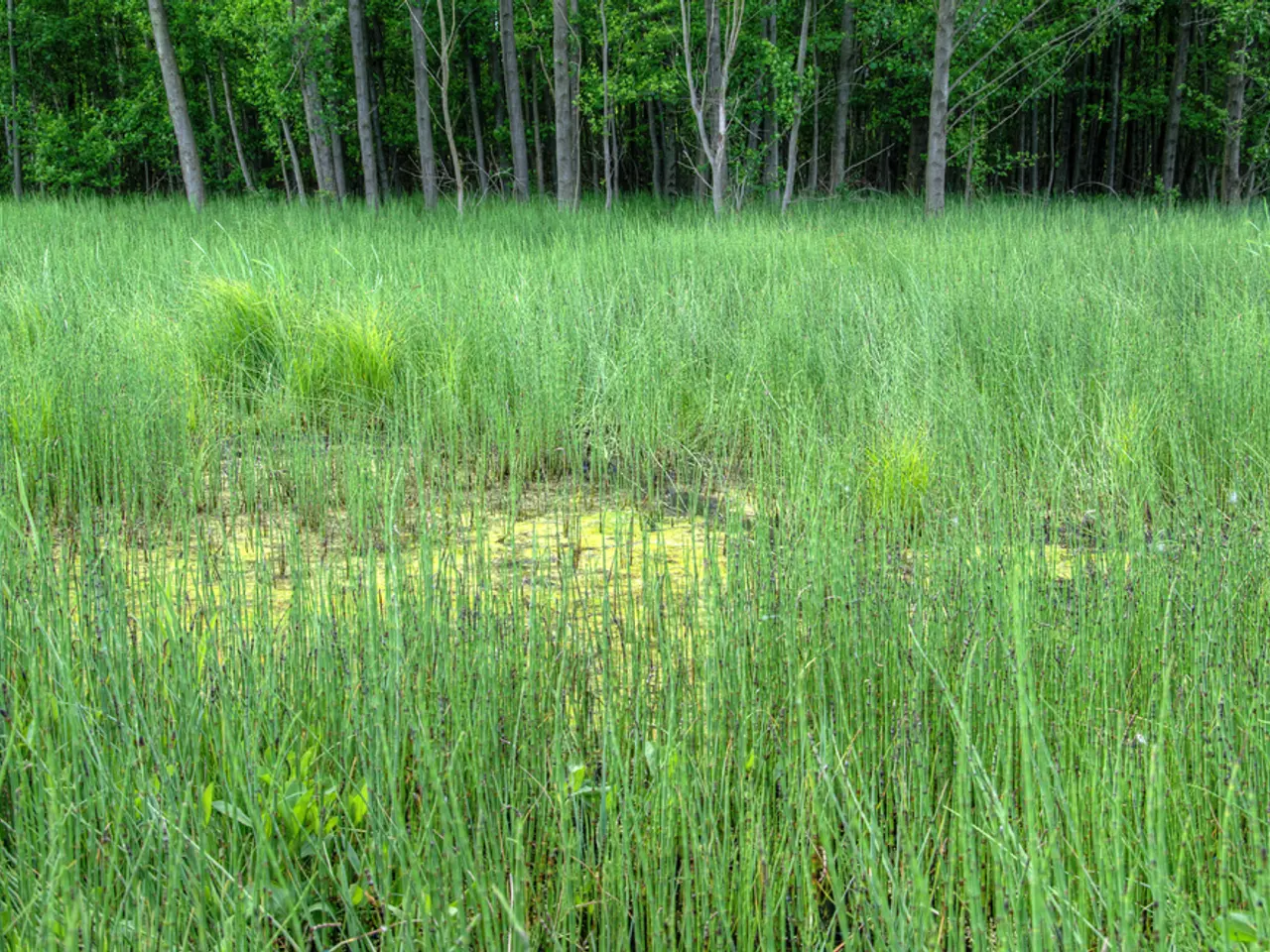Dairy waste-grown algae significantly reduces mineral fertilizer usage by 25%, according to researchers' claims
In an effort to reduce reliance on imports, minimise environmental impacts, and build resilience into its food systems, Europe is exploring innovative ways to recover nutrients and develop bio-based fertilisers. One such project, WALNUT, is leading the charge, giving wastewater a second life and treating different kinds of wastewaters to reduce the pollutant load.
At the heart of WALNUT's mission is the extraction of nitrogen from municipal wastewater, a potential game-changer for bio-based fertilisers. This process is being tested in facilities like the one in Ourense, Spain, which treats over 600 liters of urban wastewater every second.
In Ourense, nitrogen is recovered from residual streams left after sludge treatment and transformed into ammonium sulphate for agricultural use. Researcher Elena Blanco is at the forefront of this work, developing techniques to make the most of this resource.
Farmers in western France are also getting in on the action, experimenting with an algae-based powder fertiliser made from wastewater. The algae feed on the organic matter in wastewater, turning it into plant biomass rich in nitrogen. This algae powder, when mixed with mineral fertilisers, can reduce their use by up to 25%, without sacrificing yields.
However, managing algae powder requires anticipation and more expertise from farmers. Unlike mineral fertilisers, which release nitrogen instantly and are easy to dose, algae powder works more slowly. Tests on wheat plots comparing algae powder with mineral fertilisers and other organic products showed that algae alone doesn't match mineral fertilisers in terms of yield, but when combined with them, it delivers the same results.
The potential for these innovations is vast. Early results show real potential for innovations in bio-based fertilisers, such as those using algae grown on factory effluents. This could lead to a future where waste helps feed the continent, closing the loop between waste and food.
The main objective of WALNUT is to treat various wastewaters and add value to the nutrients contained in them, using these nutrients as bio-fertilisers in agriculture. This not only reduces Europe's reliance on imports but also minimises the environmental impacts of conventional nitrogen production, which is polluting and energy-intensive.
Innovations like those being developed by WALNUT offer an exciting future for sustainable agriculture in Europe. One promising example of WALNUT's work comes from Ourense, northern Spain, home to one of Europe's most advanced water treatment plants. As these technologies continue to develop and be adopted, Europe moves one step closer to a greener, more sustainable future.
Read also:
- Nightly sweat episodes linked to GERD: Crucial insights explained
- Antitussives: List of Examples, Functions, Adverse Reactions, and Additional Details
- Asthma Diagnosis: Exploring FeNO Tests and Related Treatments
- Unfortunate Financial Disarray for a Family from California After an Expensive Emergency Room Visit with Their Burned Infant








